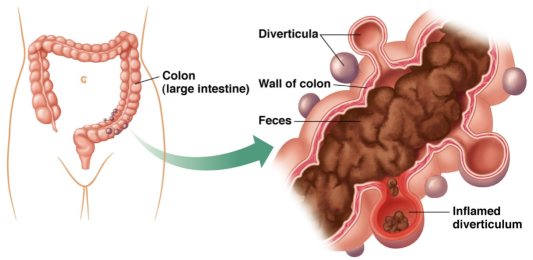A new study to be published in the February issue of the journal Gastroenterology appears to show that the formerly friendly relationship between fiber and diverticular disease prevention has soured.
The article – which doesn’t beat around the bush with its austere title, “A High-Fiber Diet Does Not Protect Against Asymptomatic Diverticulosis” looked at 2,104 individuals and found that a high fiber diet does not necessarily reduce the prevalence of diverticulosis.
Diverticula are the outpoutchings in the wall of the large intestine. While the presence of diverticula – called diverticulosis – doesn’t necessarily mean pain or progression to diverticulitis, about 10-25% of those with diverticulosis will eventually develop diverticulitis, according to the National Institute of Diabetes and Digestive Kidney Diseases.
This particular study, conducted by researchers at the University of North Carolina School of Medicine, found that, despite previously accepted theories:
- Those with the lowest intakes of fiber were 30% less likely to develop diverticula than were the high fiber eaters
- High rates of constipation were not associated with greater diverticula risk
- A high fat diet and sedentary lifestyle do not increase diverticula risk
The authors go on to conclude that having more bowel movements is actually associated with more diverticulosis.
Without offering a plausible explanation behind the findings, the researchers summarize their findings with a thought provoking recommendation: maybe it’s time the food police reconsider previous dietary hypotheses regarding asymptomatic diverticulosis.

